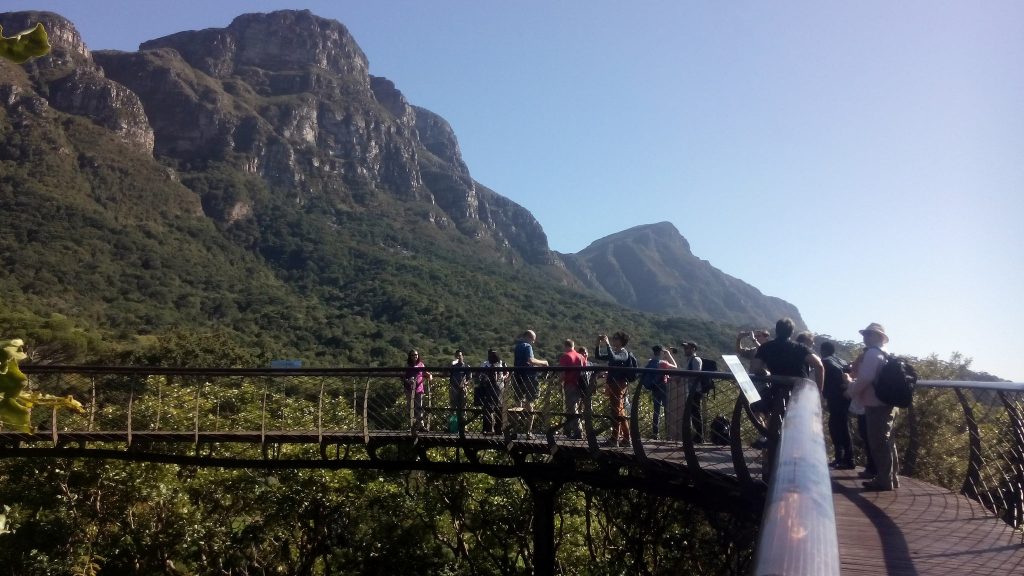Help us protect the commons. Make a tax deductible gift to fund our work. Donate today!
In March we hosted the second Institute for Open Leadership. In our summary of the event we mentioned that the Institute fellows would be taking turns to write about their open policy projects. This week’s post is from Alessandro Sarretta from the Institute of Marine Sciences (ISMAR), part of the Italian National Research Council.
2016 has been a great year for me both personally and professionally in understanding, embracing, and disseminating the culture of sharing open knowledge. One thing that really helped was my participation in the second Institute for Open Leadership (IOL), held in March in Cape Town, South Africa. Creative Commons brought together 15 fellows from 14 different countries to learn and discuss about open knowledge, and to propose a specific open policy project to be improved and supported by the contribution of other fellows and mentors.
As a researcher in the field(s) of Coastal and Marine Environment and Geospatial Information, I’m constantly dealing with data. Data are the core of science, and research has to be based on sound and reliable data.
Since at least 2002, there’s been a strong movement to allow online research outputs (referring principally to scholarly papers) to be published “free of all restrictions on access (e.g. access tolls) and free of many restrictions on use” (Open Access movement).
When talking about data, things usually get more complicated, and the open access community is still working to find the best way to allow open access to research data. One part of this requires working to convince both researchers and funders that this is the way to support better science.
In the marine community there is already a solid history of common standards for metadata and formats. There are also various portals (e.g EMODnet, Jerico) and projects (e.g. SeaDataNet) that exist for accessing a great variety of research data related to seas and oceans.
However, data policies and licences that regulate access to data are, when available, usually custom-made, requiring the filing of specific forms before use. Oftentimes these custom licenses do not clearly address the reuse of data and information.
The use of common, standard, open licences would help users to understand what they can do with the data. It would also ensure that the data providers would be able to easily share their products, with easy to understand conditions for reuse.
My goal as an IOL fellow is to inform relevant marine communities of the benefits of an open research data policy and, more specifically, to apply these principles to the practices within my institute—the Institute of Marine Sciences (ISMAR), part of the Italian National Research Council.
One of the deliverables for the Italian flagship project RITMARE (Italian research for the Sea), was to clearly define a data policy for the initiative. The document (written in Italian) defines categories of data for which different moratorium periods apply for the release of data; for all data in the project, the document requires that an open license is applied, mentioning Creative Commons licences as one of the standard options, with CC BY as the recommended first choice.

Fig. 1: Data Policy rules for the RITMARE project (from Paola Carrara et al., Facing data sharing in a heterogeneous research community: lights and shadows in the RITMARE project. https://dx.doi.org/10.6084/m9.figshare.4244375.v2)
Another way to help RITMARE researchers share their data—and also ensure they receive recognition for their scientific outputs—is by launching a grant program that will provide funding for researchers who wish to publish data papers. These grants will be provided to support the payment of the article processing fees required by open access data journals. The main requirement of the funding is that researchers must deposit their data in an open access data repository under a CC BY or CC0 license.
We are working on other initiatives that represent a bottom up, collaborative research approach. Among them, two are very well established and almost finalised. First, a repository is being developed that includes digital images of both historical and recent materials belonging to multiple typologies: a historical library, that includes books, photographs, manuscripts, etc. from the end of 16th century; a collection of maps from the 16th century, mostly devoted to the Adriatic Sea and the Lagoon of Venice; an algal collection including an historical section performed during the Second World War containing more than a thousand vouchers, and a modern collection in progress. All these materials will be released under a CC BY license through two main interoperable data portals based on open source infrastructures. Second, the data from six meteo-oceanographic buoys in the Adriatic Sea, has been recently organised in a common database containing time series related to various parameters. This data will be made available as under a CC BY license and will be published an open data in a research data repository.
Carlos Moedas, European Commissioner for Research, Science and Innovation, said in a speech on “Open Innovation, Open Science, Open to the World” that researchers should be able to rely on free access to research data—and that data needs to be “Findable, Accessible, Interoperable, and Reusable” (“FAIR Guiding Principles for scientific data management and stewardship”). The Institute of Marine Science is embracing these principles by opening its data to the marine community and the wider society. While a comprehensive open data policy for the institute is not adopted, various initiatives are fully supporting this vision. We are making valuable data open and reusable using advances to technical infrastructures, standard formats, interoperable services, and Creative Commons licenses.
Posted 01 December 2016